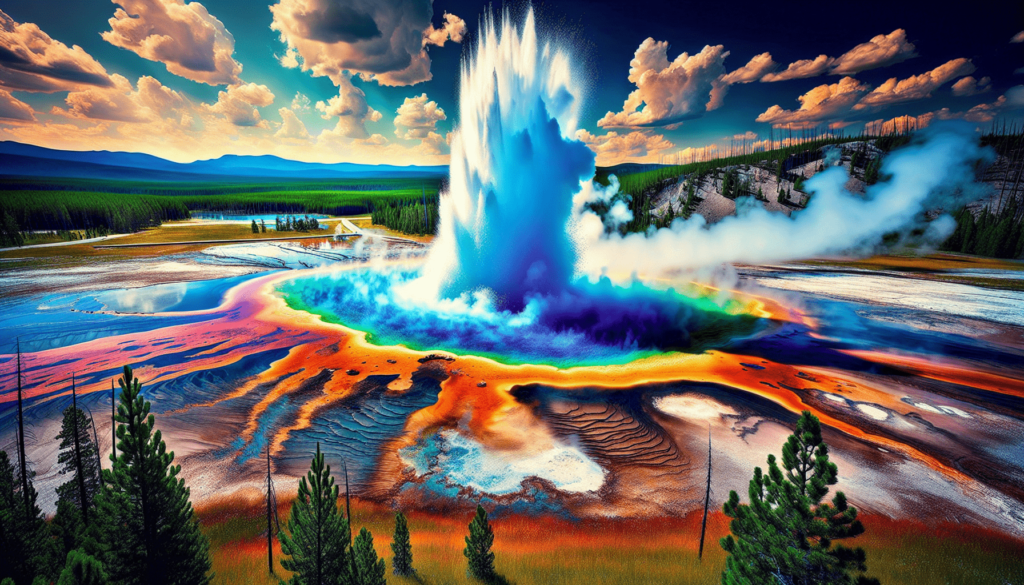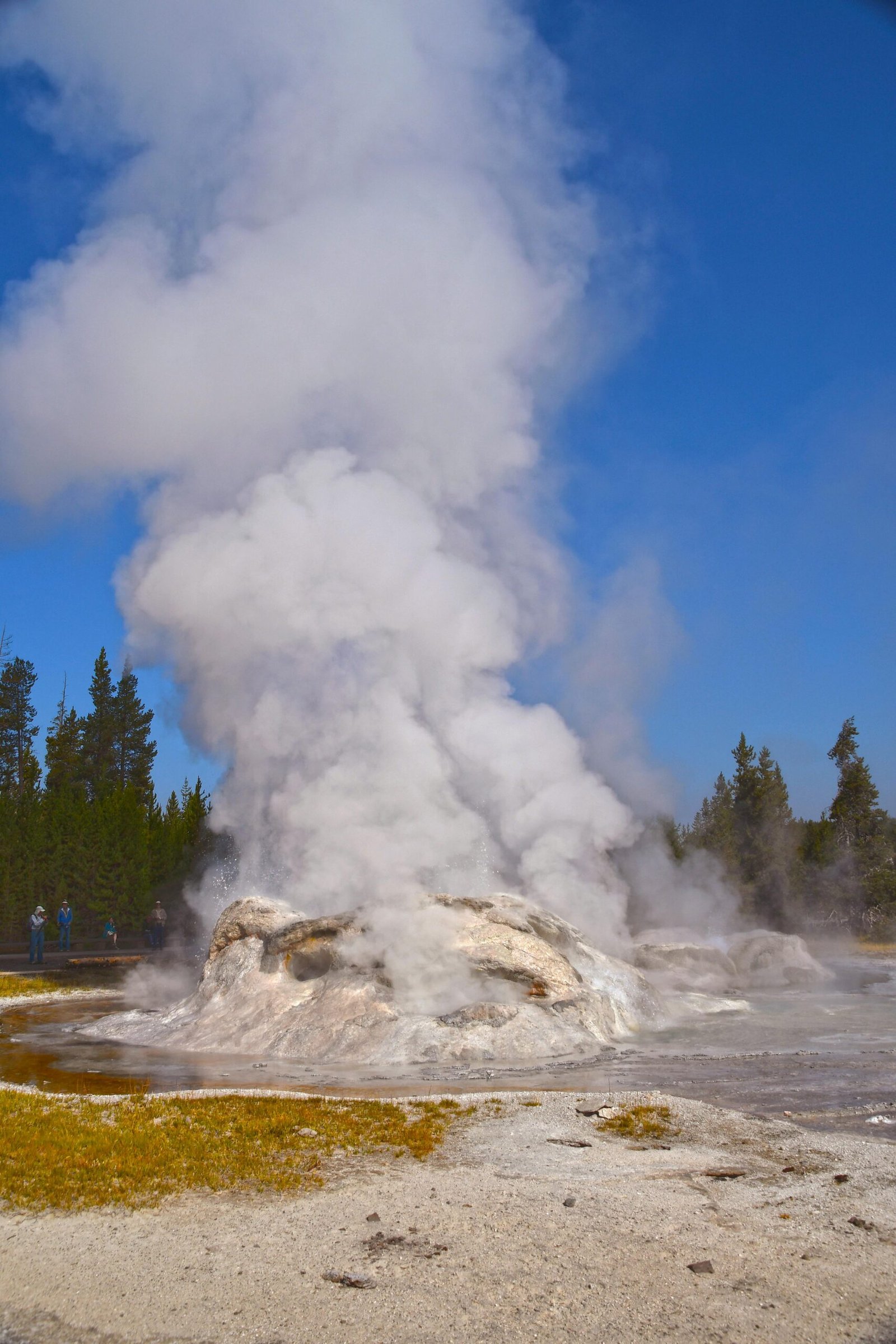
Have you ever wondered what makes a national park truly special? There’s something magical about wide-open spaces, vibrant wildlife, and stunning geological wonders. Yellowstone National Park in Wyoming is one place that encapsulates all of this and more. With its fascinating geothermal features and rich biodiversity, it’s a destination that captivates the hearts of countless visitors every year.
Introduction to Yellowstone National Park
Nestled primarily in the U.S. state of Wyoming, Yellowstone National Park is not only the first national park in the United States but also the very first in the world. Established in 1872, this park is home to an incredibly diverse array of ecosystems, landscapes, and geological phenomena. From its stunning canyons and majestic mountains to crystal-clear lakes and rolling rivers, Yellowstone is a feast for the senses.
The History of Yellowstone
The history of Yellowstone dates back thousands of years. Long before it became a national park, this land was inhabited by various Native American tribes, including the Shoshone, Crow, and Nez Perce. These tribes utilized the land’s rich resources and shared its wonders through stories and traditions.
In the mid-19th century, the park was explored by European American explorers, who marveled at its beauty and unique features. This led to a growing awareness of the need to protect the land, culminating in its designation as a national park in 1872. The park has since become a symbol of natural conservation and a model for parks worldwide.
Unique Geothermal Features
One of the most captivating aspects of Yellowstone National Park is its geothermal features. Volcanic activity beneath the earth’s surface creates a fascinating landscape filled with geysers, hot springs, fumaroles, and mud pots.
Geysers: Nature’s Spectacular Show
Yellowstone is famously home to around half of the world’s active geysers. This phenomenon occurs when water underground is heated by magma, creating pressure that forcefully expels hot water and steam at intervals.
Old Faithful
The most famous geyser in Yellowstone is Old Faithful, known for its predictable eruptions approximately every 90 minutes. When you witness Old Faithful erupt, you’re watching nature display its power and timing in a truly magical way.
Hot Springs: Colorful Wonders
Hot springs, like geysers, are a result of geothermal activity. They vary in color due to the presence of different microorganisms and mineral compositions.
Grand Prismatic Spring
One of the most breathtaking hot springs in the park is the Grand Prismatic Spring. Its vibrant hues of blue, green, yellow, and orange are striking and make for some stunning photographs.
Fumaroles and Mud Pots
Fumaroles release steam and gases, while mud pots are acidic hot springs with a muddy base. Both of these features provide a glimpse into the dynamic geothermal processes happening beneath the surface.
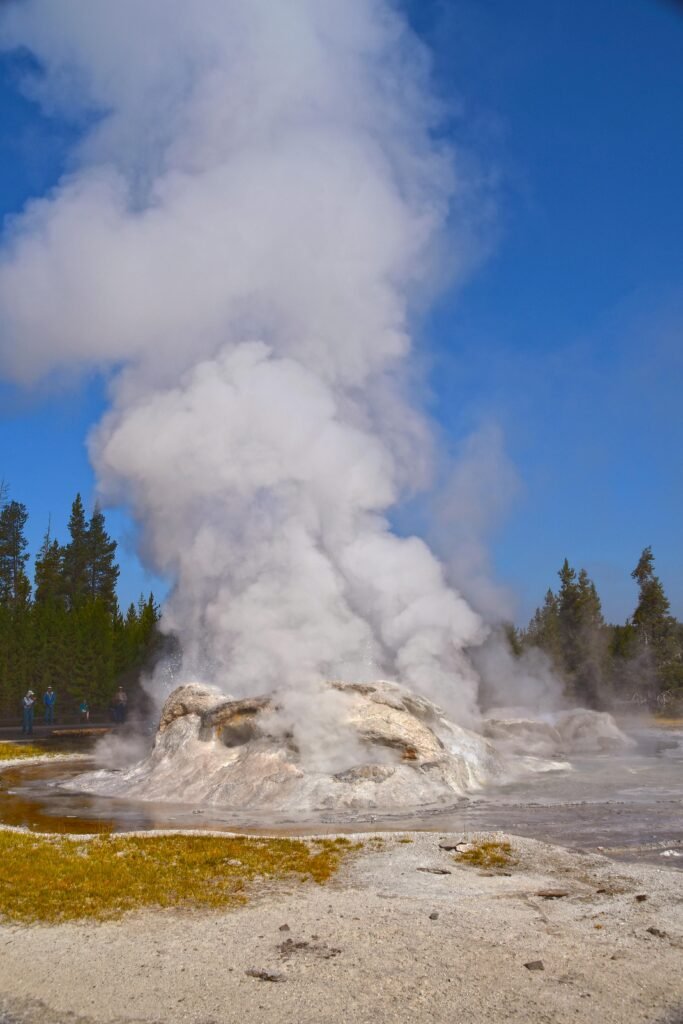
Biodiversity in Yellowstone
Yellowstone is not just about geothermal features; it also boasts an impressive range of flora and fauna. The varied ecosystems support hundreds of species, making it a biodiversity hotspot in the heart of the Rocky Mountains.
Wildlife
Yellowstone is home to numerous species of wildlife, including bisons, elk, wolves, bears, and eagles. Watching these animals in their natural habitat can be an unforgettable experience.
The Bison
Often referred to as “buffalo,” bison are one of the park’s most iconic animals. They roam freely, and their significant presence plays a vital role in maintaining the park’s ecosystems.
Wolves and Bears
The restoration of wolves in Yellowstone has been a significant conservation success story. These apex predators help regulate prey populations, which in turn supports the overall health of the ecosystem. Grizzly bears and black bears are also found throughout the park, adding an element of excitement and intrigue for visitors.
Flora
Yellowstone’s diverse plant life ranges from lush forests to open meadows and wildflower fields. Various species of trees, such as lodgepole pines and aspens, create distinct habitats for wildlife while offering a breath-taking backdrop for your outdoor activities.
Activities in Yellowstone National Park
What do you imagine doing when you think of a national park? In Yellowstone, there’s so much to see and do that you could spend days exploring without running out of activities.
Hiking
Hiking trails in Yellowstone cater to all skill levels, from leisurely walks to challenging backcountry experiences.
Best Trails
- Mount Washburn: Offering panoramic views at the summit, this moderately difficult trail is a must-try.
- Fairy Falls: An easy hike leads to the spectacular 200-foot waterfall, perfect for a picnic.
Wildlife Viewing
Primetime for wildlife viewing is dawn and dusk. Some popular spots for observing animals include:
| Location | Notable Wildlife Seen |
|---|---|
| Lamar Valley | Bison, Wolves, Grizzly Bears |
| Hayden Valley | Elk, Deer, Waterfowl |
| Roosevelt Area | Pronghorn Antelope, Foxes |
Camping
Camping in Yellowstone allows you to immerse yourself in the great outdoors. There are several campgrounds, each offering unique experiences. Reservations are recommended, especially during peak seasons.
Photography
With landscapes that range from sweeping vistas to close-up shots of intricate geothermal features, photography enthusiasts will find no shortage of breathtaking subjects in Yellowstone. Golden hour—early morning or late afternoon—provides optimal lighting for stunning photos.
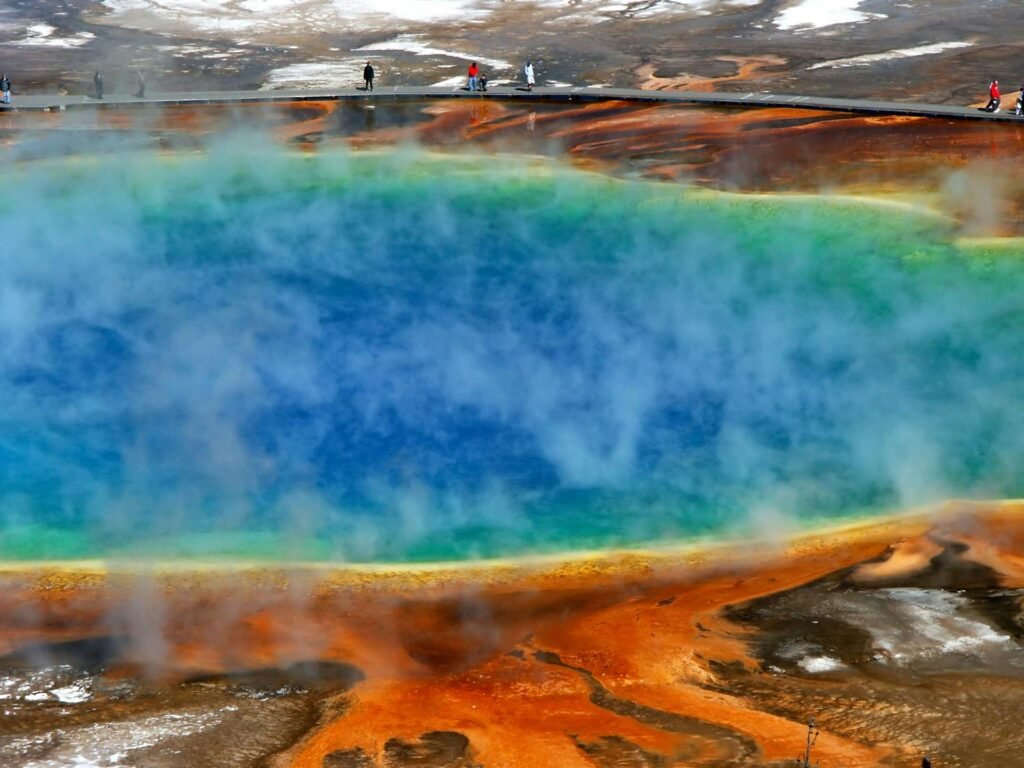
Safety Tips for Visitors
While Yellowstone is a beautiful destination, it’s essential to understand some safety precautions to ensure an enjoyable experience.
Wildlife Encounter Guidelines
Encountering wildlife is part of what makes Yellowstone so special. However, it’s important to keep a safe distance—at least 100 yards from bears and wolves, and 25 yards from other animals like bison and elk. Use binoculars for a closer look!
Staying on Trails
To minimize your impact on the environment, stick to designated trails. This helps protect native plants and ensures your safety by avoiding treacherous terrain.
Fire Safety
If you plan to camp, familiarize yourself with fire regulations in the area. Fires are only allowed in designated fire rings, and it’s vital to fully extinguish any fires before leaving the site.
Visitor Centers and Educational Opportunities
Learning about Yellowstone’s rich history, geology, and ecology is made easier through its visitor centers and ranger-led programs.
Main Visitor Centers
- Albright Visitor Center: Located in Mammoth Hot Springs, this center offers exhibits on the park’s history and wildlife.
- Old Faithful Visitor Education Center: Learn about the geothermal features and get information on upcoming geyser predictions.
Ranger Programs
Throughout the year, park rangers host programs that range from guided walks to wildlife talks. These programs provide insightful information and enhance your understanding of the park.
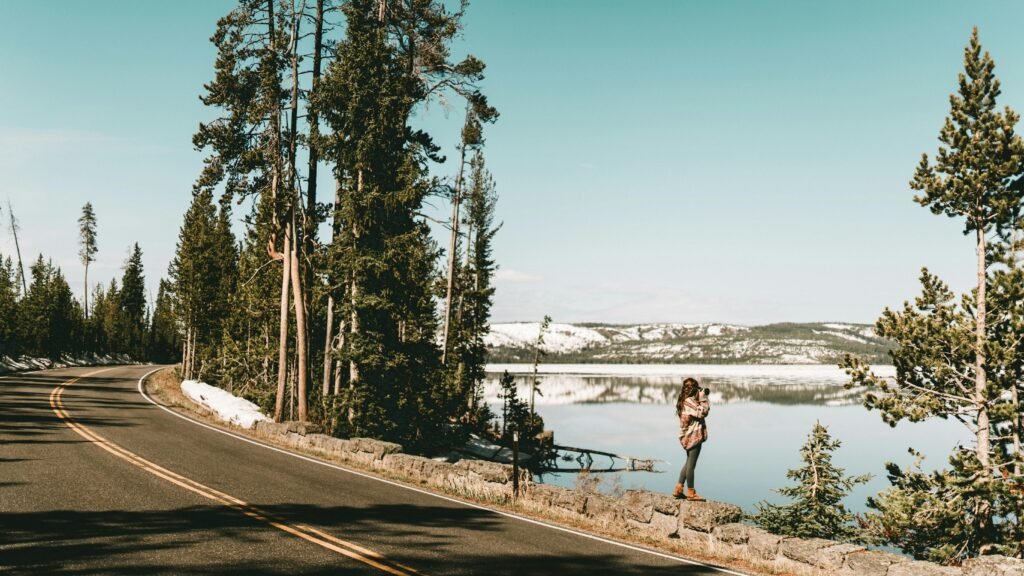
Best Times to Visit
The beauty of Yellowstone changes with the seasons, making it a year-round destination.
Summer (June – August)
Summer is the busiest season, and for a good reason. The weather is warm, attractions are fully accessible, and wildlife is more active. However, it can get crowded, so planning your itinerary in advance is beneficial.
Fall (September – October)
Fall offers pleasant weather and stunning fall foliage, making it a beautiful time to visit. Wildlife is also very active, preparing for winter.
Winter (November – March)
Winter transforms Yellowstone into a serene wonderland. While many roads close, snowshoeing and cross-country skiing are popular activities. Winter also provides unique opportunities to see wildlife against a snow-covered backdrop.
Spring (April – May)
Spring brings a burst of color with wildflowers and is another fantastic time for wildlife spotting. Animals are coming out of hibernation and newborns can often be seen in the lush meadows.
Accommodations in Yellowstone
Accommodations within the park range from rustic campgrounds to modern lodges, creating options that can suit different preferences and budgets.
Lodges and Cabins
Staying inside the park allows you to maximize your experience and enjoy the tranquility of nature.
- Old Faithful Inn: A historic lodge with unique architecture and close proximity to geysers.
- Lake Yellowstone Hotel: This lakeside hotel provides beautiful views and a comfortable stay.
Campgrounds
If you’re looking for a more authentic experience, consider camping. The park has several campgrounds, including:
| Campground | Features |
|---|---|
| Madison Campground | Near the Madison River, great for fishing |
| Fishing Bridge Campground | Located near Yellowstone Lake, offers RVs and tents |
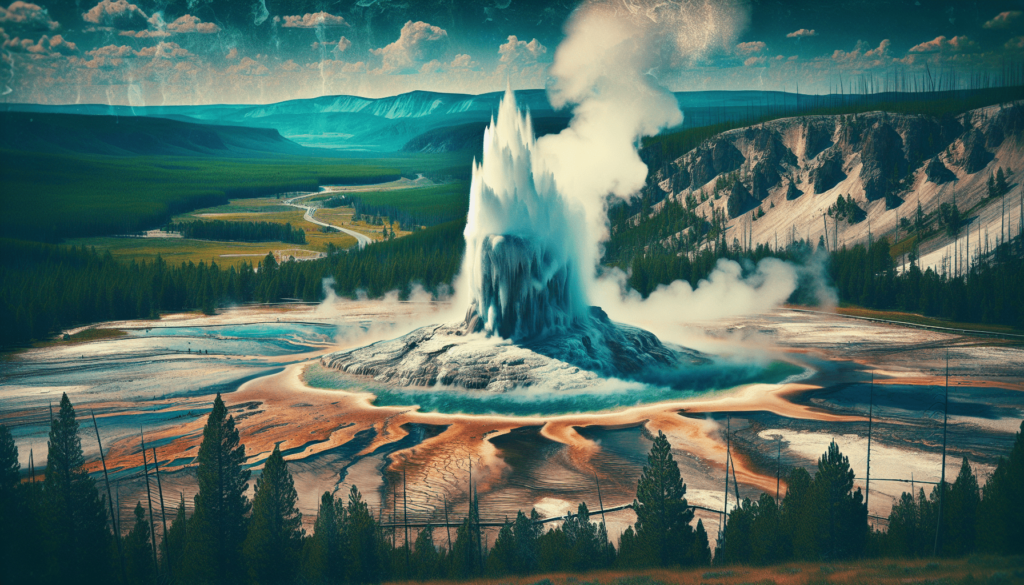
Culinary Delights in Yellowstone
Your adventures in the park can also include delightful culinary experiences.
Dining Options
Within the park, you’ll find a variety of dining options, from casual cafes to more formal dining experiences in the lodges.
- Old Faithful Lodge Cafeteria: Perfect for a quick bite after visiting the geyser.
- Lake Yellowstone Hotel Dining Room: Offers fine dining with breathtaking views of the lake.
Picnicking
Don’t overlook the joy of a picnic! There are beautiful areas where you can relax and enjoy a packed lunch amidst stunning natural surroundings. Just remember to follow park guidelines on food storage to keep wildlife safe.
Conclusion
Whether you’re captivated by geothermal marvels, intrigued by diverse wildlife, or simply looking for an outdoor adventure, Yellowstone National Park has something for everyone. With its rich history, breathtaking landscapes, and countless activities, it’s no wonder this iconic park remains a cherished destination. The wonders you’ll experience there can leave a lasting impact, creating memories that you will cherish for years to come. So, what are you waiting for? Your adventure awaits in the grandeur of Yellowstone!
